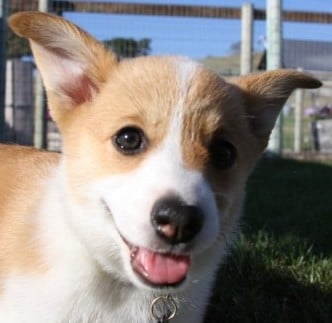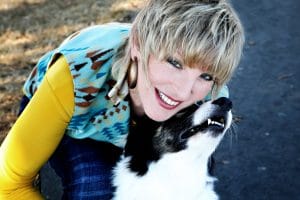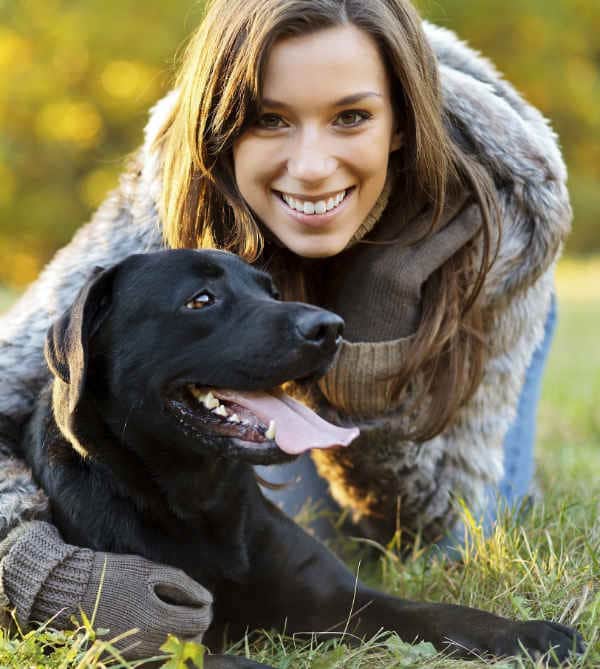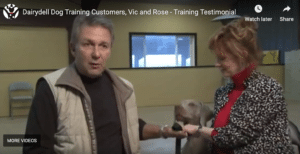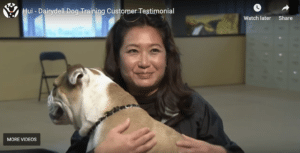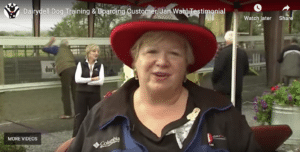I often relate a puppy’s personality to an iceberg. The tip of the iceberg – hints of a puppy’s underlying personality – can be apparent as early as seven weeks of age. By twelve weeks of age the iceberg starts to rise and you can see confidence, exuberance, timidity and the full spectrum of canine personalities. You can notice marked differences in how each puppy looks at you, holds his ears and wags his tail. This iceberg of personality continues to rise and reveal itself until the dog reaches about three years of age. At that point, the entire iceberg is visible. Many dog owners are dismayed or shocked by “new” behaviors in their dogs as they mature between one and three years of age. In almost every case, however, there were telltale hints of what was to come in the puppy’s first few months of age. What was there all along simply revealed itself over time
No matter what you may have heard about the importance of socialization and early training in the development of puppies, neither will create a puppy’s personality. Socialization and training can help a dog make the most of what nature gave him, but he was born with his personality – socialization did not create it. Timid or confident, puppies are what they are from the time they draw their first breath. Nurture (the way a dog is raised) can help a dog reach its full potential, but in my experience, it is Nature (what’s in his DNA) that provides the raw materials and determines what that potential will be. In other words, a timid puppy will be a timid dog. How timid will depend on nurture and life experiences. A confident puppy will be a confident dog, as long as its life experiences are safe and positive. An active puppy will be an active dog. How active depends on nurture and training.
So if you have a young puppy now, or are considering getting one in the future, look carefully at him and notice all the little things in his behavior:
- Is he a bouncing ball of energy – a cowabunga puppy? He will likely grow into an exuberant adult with all the management challenges that go with that.
- Does he sit alone and appear to be “thinking? He will probably be a careful adult, and perhaps be a bit stand-off-ish to new people and things until he can trust them.
- Is he nervous or reactive to noises and sudden movements? He will definitely carry this reactive nature into his adult life, as he was designed that way. Socialization will not substantially change this.
- Does he growl and protect his toys or food from his littermates? He may, indeed, tend toward resource guarding as he matures and may be picky about who his dog friends are.
- Is he confident and happy and seek human attention? Yep. That’s the kind of adult he will be.
- Does he have soft, gentle eyes and expression? He’s likely to be a compliant adult and most likely will get along with a wide variety of doggie friends.
- Does he look at you with a confident, direct, unblinking gaze? You’ll need to be a strong leader with that pup to mold his bold personality.
There are no “good” dogs or “bad” dogs. Just dogs with unique personalities that need careful management accordingly. Understand that your new puppy will exhibit “new” behaviors with some regularity as he matures, but the tendencies toward those behaviors are predetermined by his personality from birth. Not all dogs will mature to enjoy dog parks, visitors to their home, or doggie daycare. There’s nothing wrong with that. They are simply real dogs. Your job is to understand your puppy or dog, train him and manage his life experiences according to what makes him feel happy and comfortable. That will be different for every dog and always dependent upon on his personality!

